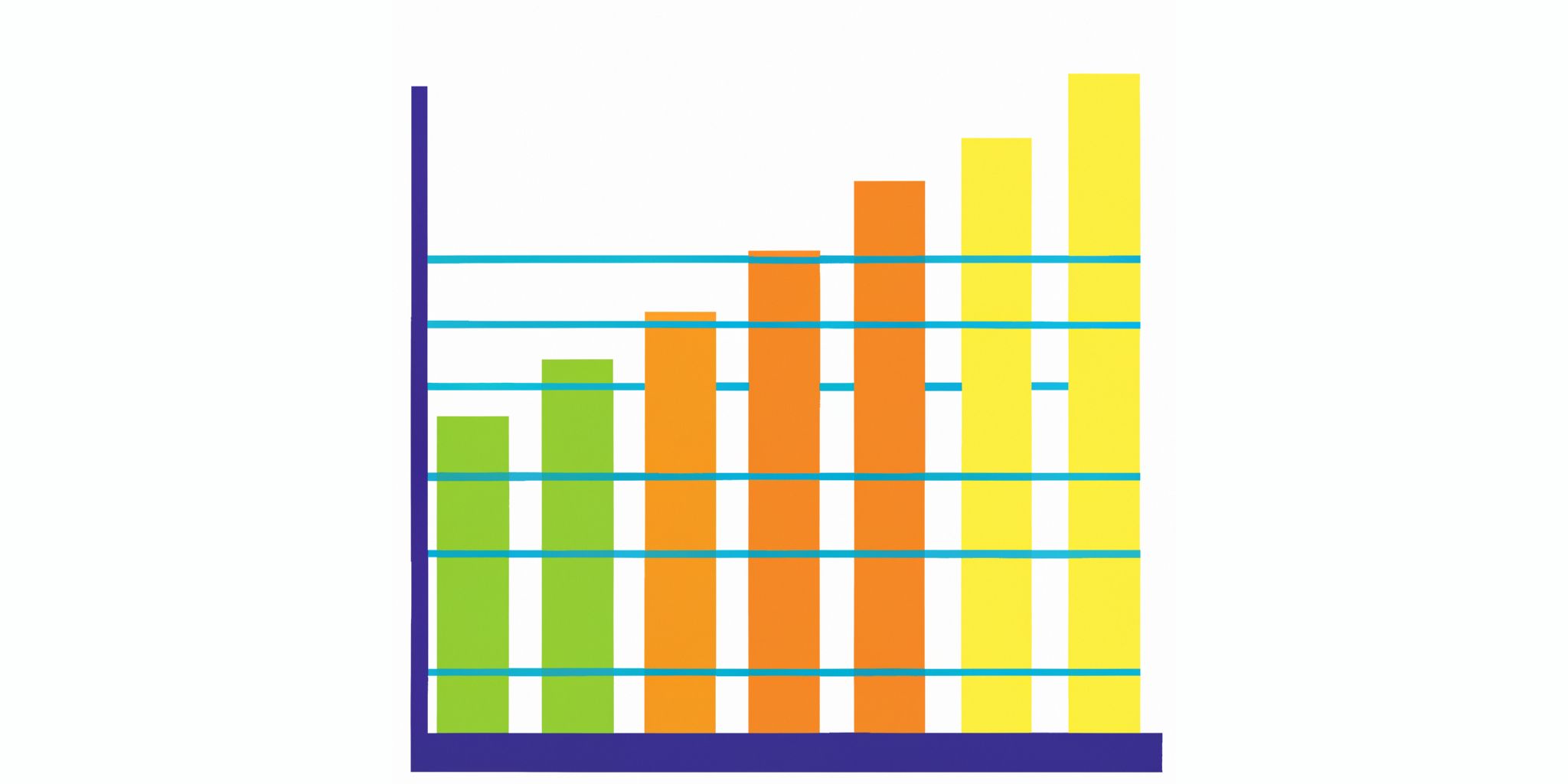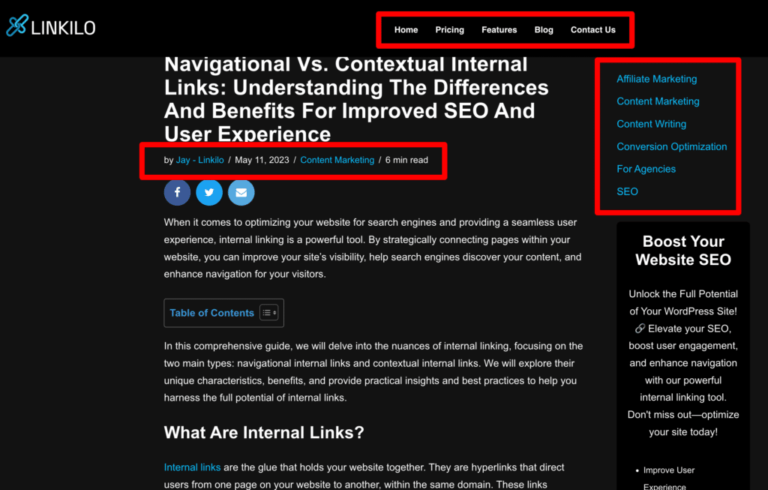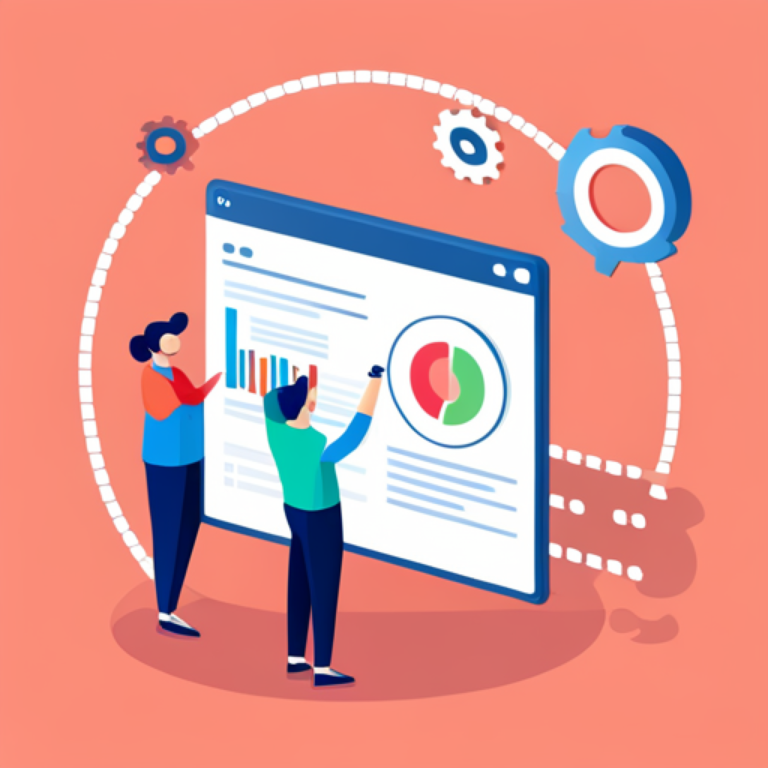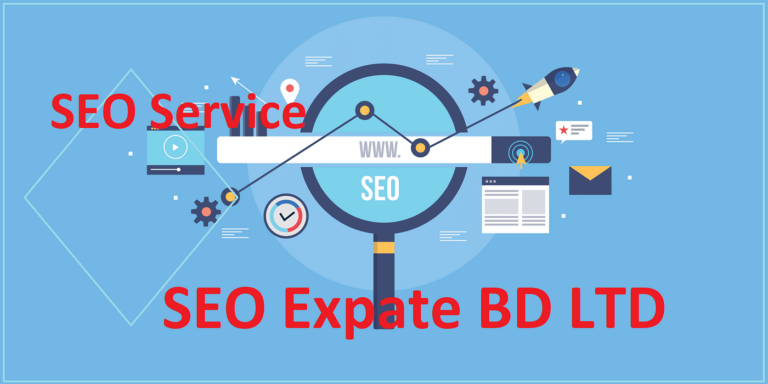Internal links help distribute page authority and guide users through a website. They are crucial for enhancing site navigation and establishing information hierarchy.
Mastering internal linking on a website is a key SEO tactic that boosts search visibility and user experience. Search engines, like Google, crawl websites by following links, both external and internal. Effective internal linking ensures that crawlers can find and index all your pages, understanding the site’s structure and content relevance.
It also empowers visitors to seamlessly explore more content, reducing bounce rates and increasing engagement. By interlinking related pages, you inform search engines about the most important pages, aiding in ranking those pages for targeted keywords. This foundation of a well-architected website not only satisfies algorithms but also delights users, meshing perfectly with SEO’s ultimate goal: to serve the best content to the right audience at the right time.

Credit: rockcontent.com
The Role Of Internal Links In Seo
Internal links are crucial in connecting separate pieces of content on a website. They form a structured pathway for search engines to crawl. Strategically placed links guide crawlers through related topics and categories. This thorough exploration boosts visibility in search results.
Employing internal links smartly can increase the indexing speed of new content. Search engines like Google become more efficient in understanding site structure. This can lead to better user engagement and SEO performance. Proper linking connects diverse topics and improves content discoverability.
User Experience And Navigation
Internal links help visitors navigate a website easily. They connect different pages, guiding users to more content they might like. This improves the experience on the site. Smart internal linking allows visitors to discover more with less effort. This keeps them engaged longer.
By offering relevant links, a site can significantly reduce bounce rates. Visitors are more likely to stick around if they find what they need quickly. Good internal linking ensures they do not leave after reading just one page. It’s about keeping them interested and clicking through. This is a win for both the site and the user.
Link Value And Distribution Of Pagerank
Internal links are crucial for SEO as they help distribute PageRank throughout a website. Each page has a value, and internal linking allows this value to flow from one page to another, which can increase the rankings of key pages. Think of your website as a city, and links as roads. Cities with more roads have more traffic, and websites with more links have more ‘traffic’ too.
Anchor text, the clickable text in a hyperlink, should be relevant and include keywords. This optimizes the links by providing clear clues about the content of the linked page. But, you must keep anchor text diverse and natural, to avoid SEO penalties.
| Aspect of Internal Links | Role in SEO |
|---|---|
| Distribution of PageRank | Increases visibility and ranking of web pages |
| Relevant Anchor Text | Enhances user experience and context for Search Engines |

Credit: wordlift.io
Internal Links As Content Contextualizers
Internal links are crucial for SEO success. They guide search engines to learn what your content means. By linking related pages, you show these engines how topics connect. This helps them see the relevancy of your content. Think of internal links as a map for Google. They make it easy for Google to understand and rank your website.
These links also help users find more information. It’s like leaving breadcrumbs that visitors can follow. This trail leads them to more useful content on your site. It keeps them engaged longer. The more they click, the better it is for your site’s visibility.
Best Practices For Internal Linking
Auditing existing link structure is crucial for a robust SEO strategy. Analyze your current internal links to discover optimization opportunities. Tools like Screaming Frog or Google Search Console provide insight into your site’s link profile. Seek out broken, irrelevant, or improper links to amend or remove. Frequent audits ensure your website remains navigable and authoritative for users and search engines alike.
Strategic use of no-follow links can be beneficial. Employ no-follow tags for unimportant pages. This directs search engine crawlers to prioritize valuable content. Remember, internal linking impacts how Google understands and values your site. Thus, use no-follow tags judiciously to maintain a hierarchy and flow of link equity that supports your SEO objectives.
Monitoring And Measuring Impact
Internal links are crucial for SEO as they help in weaving a network within your website, guiding users and search engines to relevant content. They play a key role in establishing site architecture and spreading link equity throughout your website.
Link analysis tools, like Google Analytics and Ahrefs, can track the flow of traffic and evaluate the strength of your internal links. Such tools gauge the impact on rankings and user engagement. Using insights from these tools, one can optimize the internal linking structure and improve navigational ease.
| Tool | Use Case |
|---|---|
| Google Search Console | Reviews link connectivity and highlights issues |
| Screaming Frog SEO Spider | Provides detailed link analysis, finding broken links |
| Moz Pro | Tracks internal links and scores domain authority |
Improvements in SEO performance manifest as increased visibility, higher rankings, and better user engagement. Observing upticks in organic traffic indicates a successful internal linking strategy.

Credit: aicontentfy.com
Frequently Asked Questions Of Why Are Internal Links Important For Seo?
Why Are Internal Links Important For Seo Hubspot?
Internal links help improve user navigation and distribute page authority throughout the website, boosting SEO performance on search engines like Google. They also allow search engine crawlers to discover and index web pages more efficiently.
How Important Are Links For Seo?
Links are crucial for SEO as they signal trust and authority to search engines, directly affecting rankings. High-quality, relevant links can significantly boost visibility and organic traffic to a website.
Are Too Many Internal Links Bad For Seo?
Excessive internal links can dilute page focus and harm user experience, which may negatively impact SEO. Balance and relevance are key for optimal performance.
What Types Of Links Are The Most Important For Seo?
The most important links for SEO are high-quality backlinks from reputable, authoritative websites. These links should be relevant to your content, enhancing your site’s trustworthiness and search ranking potential.
Conclusion
Understanding the significance of internal links is vital for SEO success. They guide users, boosting engagement and time on site. Search engines also rely on them to crawl and index content efficiently. By effectively utilizing internal links, you can enhance site structure, improve user experience, and ultimately, support your SEO efforts for a more robust online presence.




